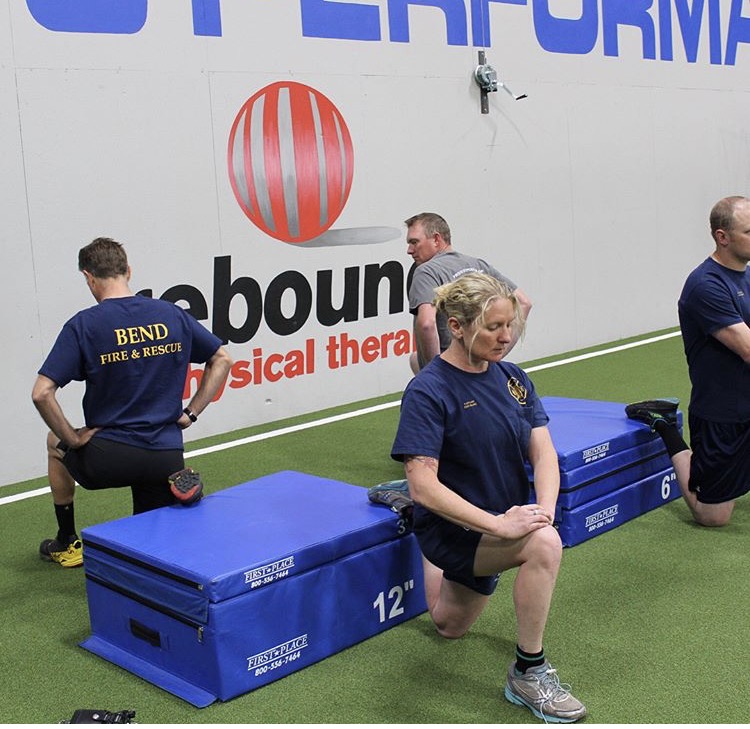
Rebound is currently overseeing an Injury Prevention Program aimed at keeping the team at the Bend Fire Department healthy and productive. In order to get a better idea of what the program looks like through the eyes of a participant, Rebound spoke with Bend Fire veteran, Scott Seaton. So take a few minutes and beat the heat by reading about a man who does it for a living.
Rebound: Can you tell us a little about your background and what your role with Bend Fire is?
Scott Seaton: I was a volunteer firefighter for four years while getting my Paramedic certification and Structural Fire Science Assoc. I was hired in 1999, promoted to Engineer, which means I drive and pump the fire engines I still hop on the ambulance as well to run medical call.
R: What led you to pursue this profession? Did you always want to be a Firefighter/Paramedic.
SS: I had friends in the department that encouraged me. It sounded like a great career and sure enough it is. I can’t say I always wanted to be one. But once I started down this career path, I knew it was for me.
R: You and your team from Bend Fire have been participating in a Comprehensive Wellness Program here at Rebound. Can you tell us a little about that?
SS: OSHA awarded us a grant for injury prevention. Part of that grant is signing an agreement with Physical Therapists for Functional Movement Screening based exercises and assessments. The Department accepted Rebounds proposal and we signed a contract. Rebound offered to FMS screen every firefighter and provide two hour drop in sessions for exercise and therapy as needed. Also, they will accommodate any firefighter that gets injured to receive treatment in a timely manner to get them back on the line.
R: What does a typical session at Rebound look like?
SS: I’ve been to several and each one has been different. They are from 10 to noon on Thursdays. Initially, we wanted more direction on how to perform the FMS exercises correctly. Jordan Stone usually has a workout planned and runs anywhere from three to twelve people through it. At the same time, Pablo Gomez treats any specific issues some of the firefighters might be having.
R: Did you learn anything during your time at Rebound that will help you better perform your daily duties on the job?
SS: Yes, I’ve learned more about how my body moves and the areas I need to work on. Having an awareness of how I move helps me make better decisions on how to do the physical part of my job so I don’t get injured. What we have to do is often spontaneous, requiring odd positions to lift patients, move hose, throw a ladder, and use large power tools.
R: Through participation in this program do you feel better prepared to face the physical demands of your career?
SS: I hope that I will be constantly trying to improve how I move despite getting older and nearing the end of my career.
R: Many people think of you and those in your profession as heroes; who, if anybody would you consider your hero?
SS: My heroes are the people I work with. They show a deep dedication to the profession and are always pushing to be more progressive. Ultimately, it is just their desire to help people to the best of their ability that drives them.
R: What would you consider the most rewarding part of your profession?
SS: Helping people when they need it most.
R: Ok, we have to ask this one. We hear shifts at the firehouse can be pretty long. What’s your go to source of entertainment when you have some downtime? Ping Pong? Pool? Paper Football? TV show? Arm Wrestling? Etc…
SS: I love ping pong but I haven’t played it in a few years. Sometimes our shifts can be pretty stressful, so a good workout is always helpful. Watching a comedy or crappy movie can be a good stress reliever for the crew, just unwinding and not thinking too much.
